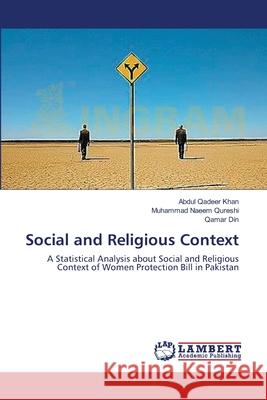Social and Religious Context » książka
Social and Religious Context
ISBN-13: 9783659410444 / Angielski / Miękka / 2013 / 60 str.
In this book the authors have critically studied the Women Protection Bill 2006 (WPB, 2006) in the social and religious context and the future of higher education of females in Pakistan. The Women Protection Bill was enacted on Nov 15 2006 that replaced the Hadood Ordinance (HO 1979). The authors have compared the two bills. The major finding of the study is that the majority of the university female students and teachers feel that WPB, 2006 is an anti-Islamic bill. The study suggests that not only proper orientation of the bill needed to be given but also female, teachers and students should be trained to familiarize with their social, legal and religious rights. It is a statistical study based on the data collected from 5 public sector universities. The study is significant in many ways in social and religious context of women.
In this book the authors have critically studied the Women Protection Bill 2006 (WPB, 2006) in the social and religious context and the future of higher education of females in Pakistan. The Women Protection Bill was enacted on Nov 15 2006 that replaced the Hadood Ordinance (HO 1979). The authors have compared the two bills. The major finding of the study is that the majority of the university female students and teachers feel that WPB, 2006 is an anti-Islamic bill. The study suggests that not only proper orientation of the bill needed to be given but also female, teachers and students should be trained to familiarize with their social, legal and religious rights. It is a statistical study based on the data collected from 5 public sector universities. The study is significant in many ways in social and religious context of women.











